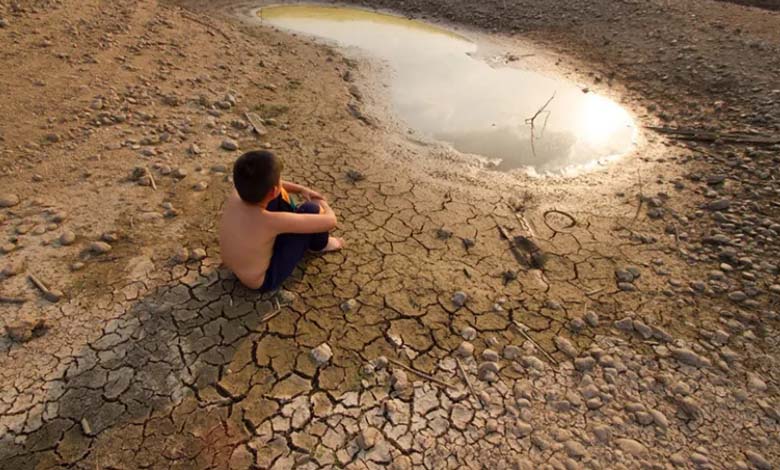Warning of food shortages: Committee calls for a global agreement to resolve the water crisis

A committee supported by the Organisation for Economic Co-operation and Development (OECD) stated on Thursday that countries need a new international agreement to address the growing water crisis, which could reduce economic growth by at least eight percent and endanger half of the world’s food supply by 2050.
-
Due to climate change, “glacial lakes” threaten villages in Nepal
-
Climate Change Forces Italy and Switzerland to Redraw Their Borders
The Global Commission on the Economics of Water, a two-year research initiative launched by the Netherlands in 2022, reported that climate change, destructive land use, and chronic mismanagement have placed the global water cycle under “unprecedented pressure,” according to Reuters.
It added that highly populated regions such as northwest India, northeast China, and southern and eastern Europe are particularly vulnerable to water shortages.
-
“Climate Change” Affects the Intensity of Rainfall and Hurricanes
-
Negative Impact of Climate Change on Poor Women and Housewives
In its final report, the commission called on governments to work together to create incentives focused on how water is consumed and to ensure that investment in vital infrastructure reaches the right places.
Singapore’s president and co-chair of the commission, Tharman Shanmugaratnam, said: “We will need to set shared goals for water sustainability.”
-
How does climate change affect mothers and children worldwide?
-
Climate Change Threatens Planet’s Largest Freshwater Reserves
In a press briefing ahead of the report’s release, he added, “Ultimately, it will require a global water agreement. It will take several years to reach this goal, but we will begin that process.”
The report revealed that global water supplies can no longer be relied upon, due in part to changing rainfall patterns, with estimates suggesting that a one-degree Celsius increase in temperature leads to a seven percent rise in atmospheric moisture retention.












